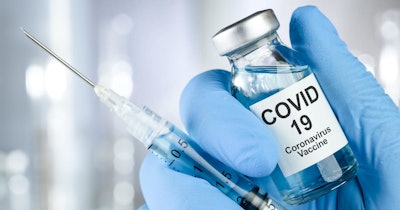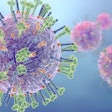
People who tested either positive or negative for COVID-19 reported persistently poor physical, mental, or social well-being three months after being tested in a 1,000-person study published on Thursday in JAMA Network Open.
“These results highlight the importance of including a control group of participants with negative COVID-19 results for comparison when examining the sequelae of COVID-19,” wrote the researchers, who are affiliated with numerous U.S. institutions including the University of California in Los Angeles and Yale School of Medicine in New Haven, CT.
In their study, although some individuals had clinically meaningful improvements over time, many reported moderate to severe impairments in well-being three months later, with 39.6% of COVID-19–positive and 53.5% of COVID-19–negative patients reporting residual symptoms, the authors wrote.
Long-term sequelae after symptomatic SARS-CoV-2 infection, a condition referred to as long COVID, may impact well-being, but current data primarily focus on discrete symptoms or healthcare use, or both, the authors added.
Numerous conditions have been reported as being associated with long COVID. For example, individuals have reported persistent dyspnea, or shortness of breath, which is also associated with lung damage and impaired lung function. Fatigue associated with long COVID does not seem to be associated with autonomic dysfunction, but SARS-CoV-2 has been detected in endothelial cells. As with severe COVID-19, endothelial dysfunction -- a type of nonobstructive coronary artery disease -- might be commonly associated with COVID-19 sequelae, wrote researchers at the General Hospital of Thessaloniki and University General Hospital Attikon in The Lancet Infectious Diseases.
In the JAMA Network Open study, participants who tested positive reported similar or slightly better well-being around the time of their acute illness when compared with those who tested negative. As both groups progressed to three months after acute illness, participants in the COVID-19–positive group reported greater overall changes in their social participation compared with participants in the COVID-19–negative group.
“These improvements were concentrated among those who were younger and those who received testing in an ambulatory setting,” the researchers wrote, adding that the overall findings of the study “may reflect the impact of infection severity at presentation and emphasize the importance of comparing COVID-19–positive participants with a concurrent control group of COVID-19–negative participants."
They added that their findings should be viewed in the context of the study's limitations. While they aimed to recruit a diverse population across the U.S., “the requirement for access to a verifiable COVID-19 test, existing electronic health record system, and internet-enabled devices to administer study components may have biased the sample,” the researchers noted.
Furthermore, those with the most severe disease may have been unable or unwilling to participate in the study, the authors noted.



















